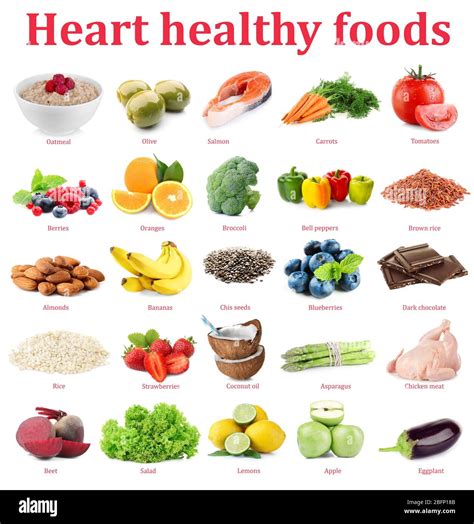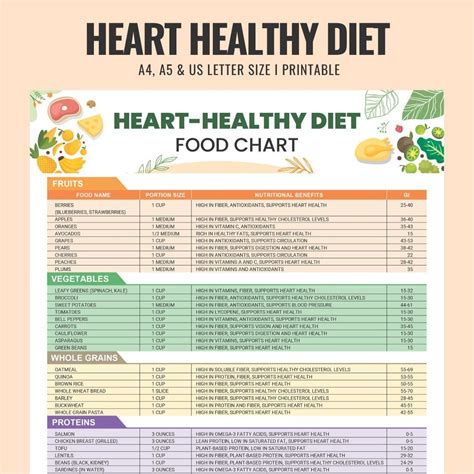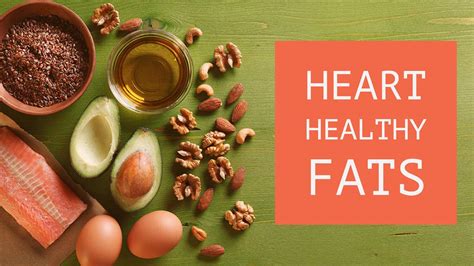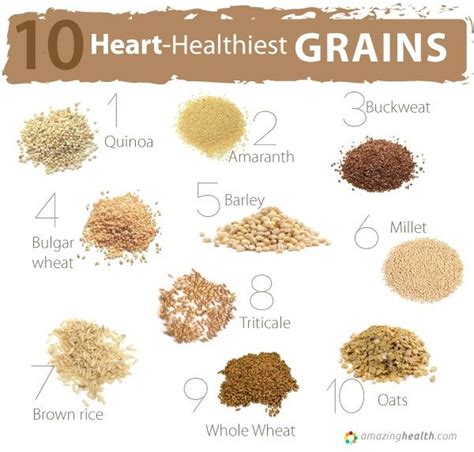Intro
Discover the ultimate Heart Healthy Foods List, featuring nutritious foods rich in omega-3 fatty acids, antioxidants, and fiber, to help lower cholesterol and blood pressure, promoting overall cardiovascular wellness.
Eating a heart-healthy diet is one of the most effective ways to reduce the risk of heart disease, which is the leading cause of death worldwide. A well-planned diet can help lower cholesterol levels, blood pressure, and inflammation, all of which are major risk factors for heart disease. In this article, we will explore the importance of a heart-healthy diet and provide a comprehensive list of foods that can help keep your heart healthy.
A heart-healthy diet is not just about avoiding unhealthy foods, but also about incorporating a variety of nutritious foods that provide essential vitamins, minerals, and antioxidants. A diet rich in fruits, vegetables, whole grains, and lean protein sources can help support overall cardiovascular health. Additionally, staying hydrated by drinking plenty of water and limiting sugary drinks is also crucial for maintaining a healthy heart.
The benefits of a heart-healthy diet are numerous, and research has consistently shown that eating a balanced diet can help reduce the risk of heart disease, stroke, and other cardiovascular conditions. By incorporating heart-healthy foods into your diet, you can help lower your blood pressure, improve blood lipid profiles, and reduce inflammation, all of which can contribute to a reduced risk of heart disease.
Introduction to Heart Healthy Foods

Heart-healthy foods are those that are rich in nutrients and low in unhealthy ingredients such as added sugars, saturated fats, and sodium. These foods can help support overall cardiovascular health by providing essential vitamins, minerals, and antioxidants. Some examples of heart-healthy foods include leafy green vegetables, berries, fatty fish, and whole grains.
Benefits of Heart Healthy Foods
The benefits of heart-healthy foods are numerous, and research has consistently shown that eating a balanced diet can help reduce the risk of heart disease, stroke, and other cardiovascular conditions. Some of the key benefits of heart-healthy foods include: * Lowering blood pressure and cholesterol levels * Reducing inflammation and improving blood lipid profiles * Supporting overall cardiovascular health * Reducing the risk of heart disease, stroke, and other cardiovascular conditionsHeart Healthy Foods List

Here is a comprehensive list of heart-healthy foods that can help support overall cardiovascular health:
- Fatty fish such as salmon, tuna, and mackerel
- Leafy green vegetables such as spinach, kale, and collard greens
- Berries such as blueberries, strawberries, and raspberries
- Whole grains such as brown rice, quinoa, and whole wheat bread
- Legumes such as lentils, chickpeas, and black beans
- Nuts and seeds such as almonds, walnuts, and chia seeds
- Avocados and other healthy fats
- Low-fat dairy products such as milk, cheese, and yogurt
How to Incorporate Heart Healthy Foods into Your Diet
Incorporating heart-healthy foods into your diet can be easy and delicious. Here are some tips for adding more heart-healthy foods to your diet: * Start your day with a heart-healthy breakfast such as oatmeal with fruit and nuts * Snack on fruits and vegetables throughout the day * Incorporate lean protein sources such as chicken, fish, and beans into your meals * Use healthy fats such as olive oil and avocado oil for cooking * Limit your intake of sugary drinks and fast foodHeart Healthy Fats

Heart-healthy fats are those that are rich in monounsaturated and polyunsaturated fats, which can help lower cholesterol levels and reduce inflammation. Some examples of heart-healthy fats include:
- Avocados
- Nuts and seeds such as almonds, walnuts, and chia seeds
- Fatty fish such as salmon, tuna, and mackerel
- Olive oil and other healthy oils
Benefits of Heart Healthy Fats
The benefits of heart-healthy fats are numerous, and research has consistently shown that eating a diet rich in these fats can help reduce the risk of heart disease, stroke, and other cardiovascular conditions. Some of the key benefits of heart-healthy fats include: * Lowering cholesterol levels and improving blood lipid profiles * Reducing inflammation and improving overall cardiovascular health * Supporting the health of the brain and nervous systemHeart Healthy Grains

Heart-healthy grains are those that are rich in fiber, vitamins, and minerals, and low in added sugars and refined carbohydrates. Some examples of heart-healthy grains include:
- Whole wheat bread
- Brown rice
- Quinoa
- Oats
Benefits of Heart Healthy Grains
The benefits of heart-healthy grains are numerous, and research has consistently shown that eating a diet rich in these grains can help reduce the risk of heart disease, stroke, and other cardiovascular conditions. Some of the key benefits of heart-healthy grains include: * Lowering cholesterol levels and improving blood lipid profiles * Reducing inflammation and improving overall cardiovascular health * Supporting the health of the digestive systemConclusion and Next Steps

In conclusion, eating a heart-healthy diet is one of the most effective ways to reduce the risk of heart disease, stroke, and other cardiovascular conditions. By incorporating heart-healthy foods into your diet, you can help lower your blood pressure, improve your blood lipid profiles, and reduce inflammation, all of which can contribute to a reduced risk of heart disease. Remember to start your day with a heart-healthy breakfast, snack on fruits and vegetables throughout the day, and incorporate lean protein sources and healthy fats into your meals.
What are some examples of heart-healthy foods?
+Some examples of heart-healthy foods include fatty fish, leafy green vegetables, berries, whole grains, and legumes.
How can I incorporate more heart-healthy foods into my diet?
+You can incorporate more heart-healthy foods into your diet by starting your day with a heart-healthy breakfast, snacking on fruits and vegetables throughout the day, and incorporating lean protein sources and healthy fats into your meals.
What are some benefits of eating a heart-healthy diet?
+Some benefits of eating a heart-healthy diet include lowering blood pressure and cholesterol levels, reducing inflammation, and reducing the risk of heart disease, stroke, and other cardiovascular conditions.
We hope this article has provided you with a comprehensive list of heart-healthy foods and tips for incorporating them into your diet. Remember to always consult with a healthcare professional before making any significant changes to your diet or lifestyle. If you have any questions or comments, please don't hesitate to reach out. Share this article with your friends and family to help them learn more about the importance of a heart-healthy diet.
